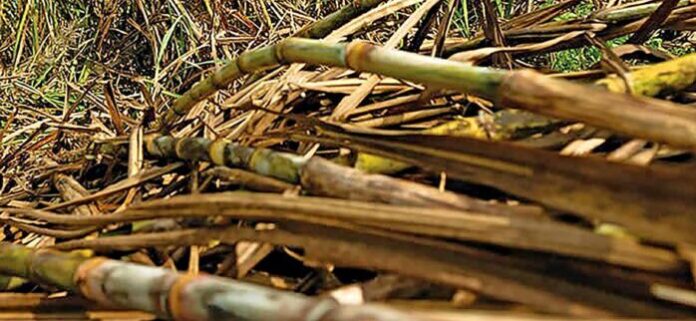Hundreds of small sugarcane growers in KwaZulu-Natal face ruin due to cheap sugar imports and rising operational costs resulting from the imposition of a government sugar levy.
“It is a bloodbath; I’m heavily indebted and barely surviving. The closure of some mills in the region and expensive cost of fertilisers is driving small scale growers out of business. The recently imposed sugar tax is the final nail in the coffin,” lamented Zamokuhle Mzimela, a sugarcane grower from the rural village of Gingindlovu, northern KwaZulu-Natal.
He farms on 16 hectares of land. His business was once so profitable he hired eight permanent workers, paying them a monthly salary, and went on to buy four tractors and accompanying trailers.
“I worked for the government for 30 years as a teacher and in 2008, I took an early retirement aged 54. It had always been my ambition to work the soil.
Sugarcane was an ideal option because of the arable land that we’re blessed with. I poured my entire pension payout into it.”
Mzimela recalled that for a good 11 years the sugarcane sector was at its peak. He had no problems paying workers and remained with sufficient profits.
“No worker of mine would go home without being paid a bonus. The sugarcane business was booming. The sugar mills were working optimally, and they were paying well on time,” said Mzimela.
However, the sudden changes in the sugarcane sector have forced him to lay off six workers and sell two of his tractors to keep afloat. He also explained the increased cheap sugar imports have also exacerbated the woes faced by small growers.
The health promotion Levy also known as sugar tax, published in the Government Gazette in 2017 enforces a 11% levy on all sugary beverages. It was introduced by the department of health in its ambitious plan to decrease diabetes, obesity and other related diseases.
According to the statistics provided by the department of trade and industry, the country’s sugar sector has lost close to R2-billion annually as a result of the sugar tax. The severe financial situation faced by small-scale growers is corroborated by the South African Farmers Development Association (Safda), a Durban-based organisation formed to support sustainable black rural farming enterprises.
“Since its introduction in April 2018, the sugar tax has wreaked havoc in the sugar industry, leading to a multi-billion-rand revenue loss, causing substantial job losses. This also caused the permanent closure of two mills in KwaZulu-Natal,” said Safda chairperson Siyabonga Madlala.
According to Madlala, the Nedlac-commissioned study on the socio-economic impact of the health promotion levy found that the sugarcane and sugar milling sectors lost a
cumulative 13, 536 (12, 860 farm jobs) by 2019.
“In its first year of implementation, the industry lost 250, 000 tons of sugar sales,” he said.
Madlala also argues that no credible studies have shown that the imposed sugar tax decreased obesity and diabetes.
Another sugarcane-based organisation, the SA Canegrowers Association, said the sugar tax had caused untold harm to small-scale growers.
“Studies done by agricultural consultancy, the Bureau for Food and Agricultural Policy have shown that by merely continuing the current sugar tax regime, canegrowers can expect a further loss of 10% of direct jobs by 2032,” said Higgins Mdluli, SA Canegrowers chairman.
“The biggest job losses are expected among small scale growers in rural areas of KwaZulu-Natal and Mpumalanga,” he said.
The sugarcane sector provides about 350, 000 jobs in KwaZulu-Natal. It also serves a major employer for rural communities.
Visit SW YouTube Channel for our video content



